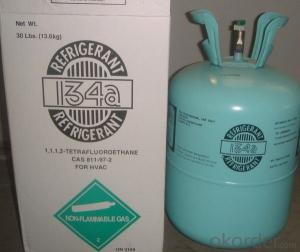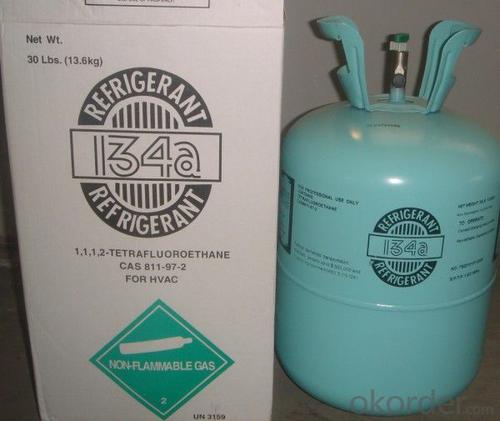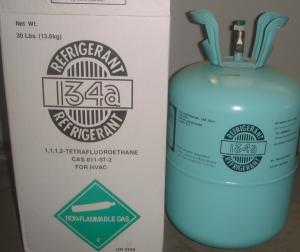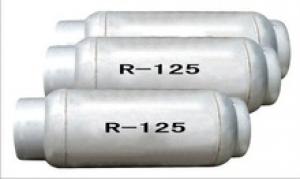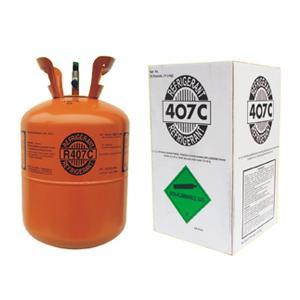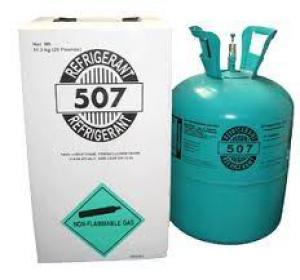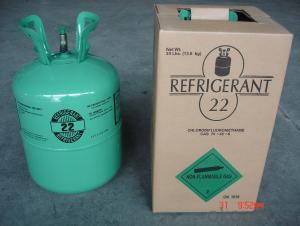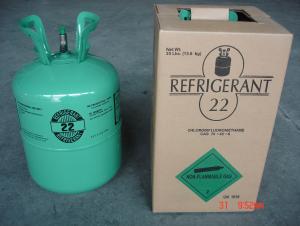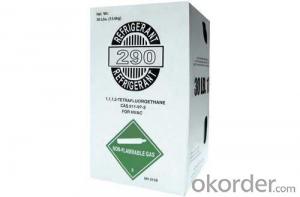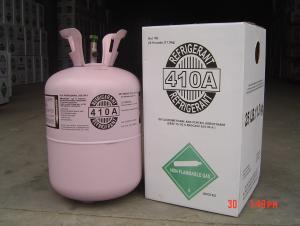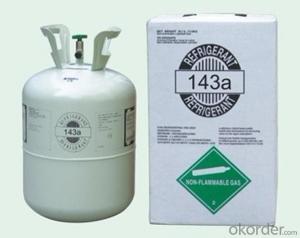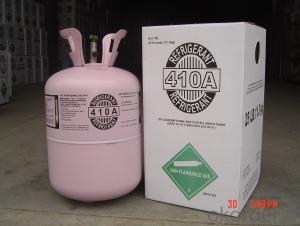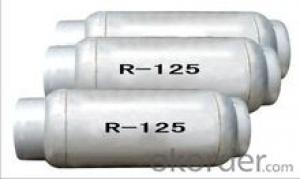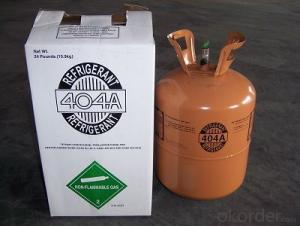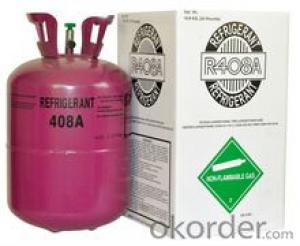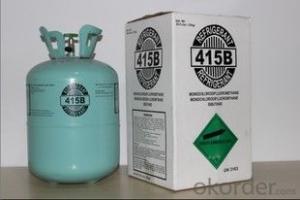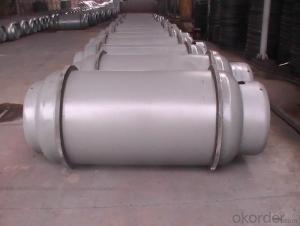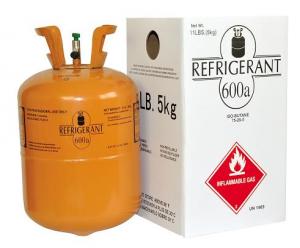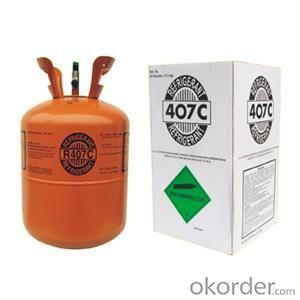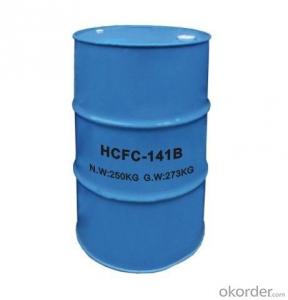Refrigerant Gas R134a
- Loading Port:
- Shanghai
- Payment Terms:
- TT OR LC
- Min Order Qty:
- -
- Supply Capability:
- 1000MT m.t./month
OKorder Service Pledge
OKorder Financial Service
You Might Also Like
high quality r134a refrigerant gas with 99.9% purity
Application
The product is used as a refrigerant in household , industrial and commercial airconditioning systems.
It can also be used as an aerosol propellant for pesticide and paint , or as a fire extinguishing agent.
It is a primary feedstock for fluoropolymers.
Physical and chemical properties
Under normal temperature and pressure , the product is a colorless, odorless and nontoxic gas. Its melting point is -160°C, its boiling point is -40.8°C and its liquid density is 1.213g/cm3 at 20°C. Its mixture with air is nonflammable and free of explosion risk. It shows good thermal and chemical stabilities under normal conditions.
Storage&transportation
The product is packed in appropriate cylinders or tanks(or tank cars). It is to be kept in cool and dry place, without being exposed to heat source , sunlight and raining.
It is to comply with the regulations of railway and road transportation issued by Chinese government concerning hazardous cargo.
Packing specifications
Non-refillable cylinder: 30lbs/13.6kg, 50lbs/22.7kg; Refillable Cylinder:400L,800L,926L,1000L;ISO TANK.
Product: | tetrafluoroethane R134A | ||||||||||||||||
| |||||||||||||||||
Property of chloride : |
| ||||||||||||||||
| |||||||||||||||||
Packing | Can of 220g, 250g, 280g, 300g, 340g, 500g, 800g, 1000g; Disposable cylinder 30lb/13.6kg, 50lb/22.7kg; Recyclable cylinder 400L, 800L, 926L, 1000L; ISO-Tank. | ||||||||||||||||
| |||||||||||||||||
Quality standard : |
| ||||||||||||||||
| |||||||||||||||||
Application: | Refrigerant for CFC-12 substitute. | ||||||||||||||||
- Q: What is the difference between an aromatic compound and a hydrocarbon derivative?
- The aromatic compound is a benzene ring containing compound, which may be a hydrocarbon or a hydrocarbon derivative. Hydrocarbons are hydrocarbon-containing compounds, and hydrocarbons containing hydrocarbons other than hydrocarbons are derivatives of hydrocarbons. The two concepts have crossed.
- Q: What is organic matter?
- Organic matter usually refers to carbon-containing compounds, or hydrocarbons and their derivatives are collectively referred to as organic compounds.
- Q: Simply talk about hydrocarbons
- Hydrocarbon oil is a substitute for petrochemical diesel bio-liquid fuel, is a substitute for oil energy. It is a kind of liquid fuel produced by the lipid exchange reaction under the action of the catalyst, which is made of various kinds of lipid compounds (rapeseed oil, cottonseed oil and various vegetable oil waste) and methanol as raw materials. Burning, no black smoke, no smell, no harmful gas discharge. After testing the physical and chemical indicators have reached the national standard. Is a renewable energy source of biomass, the required wide range of raw materials, cheap.
- Q: High school chemical hydrocarbons with hydrocarbon derivatives with water solubility, density for accurate and comprehensive summary, thank you. Out of college entrance examination
- The amount of forgotten, just remember the carbon six rings
- Q: China's largest asphalt production base where
- Asphalt material is divided into asphalt and tar asphalt two categories. Asphalt is divided into natural asphalt and petroleum asphalt, natural asphalt is the oil exudation surface after long-term exposure and evaporation of the residue; oil asphalt is refined processing of residual oil residue, the appropriate process to deal with the product The Tar asphalt is coal, wood and other organic dry distillation processing of the tar after re-processing products. Most of the asphalt used in the project is petroleum asphalt, and petroleum asphalt is a mixture of complex hydrocarbons and their nonmetallic derivatives. Usually the asphalt flash point between 240 ℃ ~ 330 ℃, the ignition point than the flash point of about 3 ℃ ~ 6 ℃, so the construction temperature should be controlled below the flash point.
- Q: Is acrylamide an oxygen-containing derivative of hydrocarbons?
- High school stage seems to learn alcohol, phenol, aldehyde, carboxylic acid and esters and amino acids
- Q: What is the most primitive person on earth?
- The process of organic life is roughly divided into three steps: first the original earth simple inorganic compounds to form the original organic matter (hydrocarbons and its simplest derivatives), the second is based on the first step, gradually developed into a complex Organic compounds (sugars, nucleotides, amino acids) and their polymer polysaccharides, nucleic acids and proteins, as well as other organic substances, and the third is that with the evolution of natural conditions on Earth, the above substances are complex interactions, resulting in a metabolic Characteristics, can grow, reproduce, inheritance, variation of the original organic organisms.
- Q: Is the oxygen derivative of the hydrocarbon a non-methane total hydrocarbon?
- Hydrocarbon derivatives of hydrocarbons do not belong to non-methane total hydrocarbons
- Q: Is the heterocyclic compound not a derivative of cyclic hydrocarbons? why?
- The heterocyclic compound is an organic compound containing a heterocyclic structure in its molecule. The atoms that make up the ring contain at least one heteroatom in addition to carbon atoms. The heteroatoms include oxygen, sulfur, nitrogen and the like. Theoretically, the heterocyclic compound can be regarded as a derivative of benzene, that is, one or more CH in the benzene ring is replaced by a heteroatom. The heterocyclic compound may be in parallel with the benzene ring to form a fused ring heterocyclic compound.
- Q: Carbon compounds (except inorganic carbon compounds), hydrocarbons and derivatives of the general term is?
- Hydrocarbons and hydrocarbon derivatives
Send your message to us
Refrigerant Gas R134a
- Loading Port:
- Shanghai
- Payment Terms:
- TT OR LC
- Min Order Qty:
- -
- Supply Capability:
- 1000MT m.t./month
OKorder Service Pledge
OKorder Financial Service
Similar products
Hot products
Hot Searches
